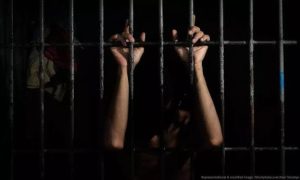
It has been just over seven months since the Private Voluntary Organizations (PVO) Amendment Act was signed into law in Zimbabwe on 11 April 2025, and it is already reshaping the operating environment for non-governmental organisations (NGOs) and wider civil society, with rights monitors raising the alarm about this “unprecedented attack on civic space in Zimbabwe” causing a “detrimental impact on fundamental freedoms”.
The law tightens registration and reporting requirements for charities and civil society groups, expanding executive powers over organisations and introducing tougher sanctions for non-compliance – including criminal penalties for leaders of groups deemed to violate the statute.
It also imposes new restrictions on foreign funding and gives government officials wide discretion to audit, suspend or replace NGO leadership and to freeze organisational assets. Additionally, accompanying government guidance relating to the Act required existing PVOs to re-register within 90 days of the amendment coming into force.
Zimbabwe’s government says that it introduced the PVO Act to ensure compliance with international regulatory frameworks on money laundering and terrorist financing, especially Recommendation 8, which concerns the non-profit sector. In an article published in the state-controlled Herald newspaper just a few days after the bill was enacted, the Permanent Secretary for Information, Publicity and Broadcasting Services Nick Mangwana insisted that: “…the Private Voluntary Organisations Amendment Act is a necessary step towards strengthening Zimbabwe’s fight against organized crime, money laundering, and terrorism funding” which will “ensure the integrity of its financial system, protect its citizens, and promote sustainable development”.
But the Amendment follows a wave of anti-civil society legislation introduced in countries around the world, from Hungary to Peru, Georgia to Egypt and Russia to India, all in an attempt, as Amnesty International stated back in 2019, to “bully them [civil society] into silence”.
Although the current freeze on US foreign aid has also had a deleterious impact on development programmes in Zimbabwe, particularly those in the areas of HIV/Aids, healthcare and agriculture. Marvelous Khumalo, a spokesperson for the Crisis in Zimbabwe Coalition – an alliance of more than 80 civil society organisations (CSOs) in Zimbabwe working for democratic change – says the PVO Amendment Act has literally crippled the operations of CSOs across the country.
“This has negatively affected human rights work in the country. NGOs used to monitor, expose and document human rights violations in the past. Of late, violations are going unnoticed and undocumented,” he tells Equal Times.
He argues that the Zanu-PF regime – which has ruled Zimbabwe since 1980 and which has been headed by President Emmerson since 2017 – has gone rogue since the monitoring of government is now so restricted, adding that for democracy to work, non-state actors should be able to hold the government accountable for its actions and demand transparency in governance.
“This is no longer possible in Zimbabwe as most NGOs have almost closed shop due to the PVO Amendment Act,” he says.
Human rights NGOs forced to be “lapdogs rather than watchdogs”
There are no clear figures of the number of NGOs that have shut down since the enactment of the new PVO law, partly because the Act deters NGOs tasked with monitoring civic space from doing so. And while the full effects of the PVO law’s implementation are still unfolding, one NGO executive director who spoke to Equal Times on the condition of anonymity says that the Amendment has left the operation of his non-profit hanging in the balance: “We’ve had donor agencies that previously promised to fund our projects make a sudden about turn, and this has forced us to work on a shoe-string budget.” He says that while no direct reason was given for the pulling of funding, the timing makes it clear that funders feared government backlash.
Others in the civic space say that the bureaucratic hurdles introduced by the new law are already disrupting programmes that deliver health, education and human rights services across the country. Smaller community organisations, which operate on razor thin budgets and depend on foreign grants, face new costs and paperwork. Some donors have signalled caution, raising the prospect of funding shortfalls and interrupted service delivery to vulnerable populations. Meanwhile, legal experts warn that the requirement for re-registration and expanded reporting will impose immediate compliance burdens and could force some groups to suspend activities while they seek approval.
“As it stands, most [NGOs and CSOs] have not even been registered since the law was passed because of the administrative hiccups that are associated with it, and of course, there is also a lack of awareness from those who are supposed to be responsible for the registration of these organisations,” says legal and media expert, Mlondolozi Ndlovu.
He continues: “This law also censors organisations, affecting their right to freedom of expression and freedom of association. They would prefer to be lapdogs for fear of being shut down, rather than watchdogs of the government, and this is very dangerous in a democracy where civil society and NGOs are supposed to provide oversight over government.”
Signs of a government “intolerant of any form of oversight or scrutiny”
Major human rights organisations, legal associations and international NGOs have publicly criticized the law as disproportionate and inconsistent with Zimbabwe’s international obligations on freedom of association and expression.
In a June 2025 statement, the International Federation for Human Rights (FIDH) and the World Organization Against Torture described the Act as “an unprecedented attack on civic space in Zimbabwe” which will have “harmful effects on Zimbabwean civil society and civic space, in violation of both Zimbabwe’s own Constitution and the country’s international human rights obligations”.
In an April 2025 statement, Idriss Ali Nassah, senior Africa researcher at Human Rights Watch, warned that: “Civil society groups shouldn’t have to operate with the fear that they may be shut down and their staff criminally charged for simply doing their jobs.” While Amnesty International, the New York Bar Association and regional human rights bodies have all raised similar alarms, calling for the Acts repeal or urgent amendment to protect civic space.
Melusi Simelane of the Southern African Litigation Centre described the PVO Act as “cloaked in the language of reform yet [it] carries the sharp edges of state control”.
Simelane also referred to the case of Blessing Mhlanga, a journalist who was arrested and charged with inciting violence after interviewing a critic of President Mnangagwa. His arrest, Simelane argued, “signals a government increasingly intolerant of any form of oversight or scrutiny, and the PVO Act places NGOs in the same line of fire”.
Rights groups have also expressed concerns that the Amendment contains vaguely worded offences that risk criminalising routine human rights advocacy and “political” work. Other reports highlight clauses that bar NGOs from undertaking undefined “political lobbying” and that bar funding from ill-specified “illegitimate sources,” creating broad grounds for prosecutions and fund seizures. Observers say such language creates a chilling effect: groups may self-censor or completely curtail advocacy to avoid prosecution.
Telling, the private voluntary organisations that stand to be worst affected by the Act have been conspicuous by their refusal to comment on the matter, for fear of being denied licences or having their licenses revoked outright.
Nigel Nyamutumbu, coordinator of the Media Alliance of Zimbabwe, is one civic leader that has dared to speak out in public. He tells Equal Times: “The new law requires that the board members of PVOs have to undertake some form of security and background checks by the government through the PVO board, which in itself is some form of surveillance.
“In a way, it opens up to the partisan issuance of these licenses in the sense that given the context of our politics, there is a likelihood that those that are viewed or seen to be critical of government may be red-flagged,” he says.
This, he explains, does not create a conducive environment for civic organisations, particularly those that work in the realm of human rights.
Nyamutumbu reckons that the law provides excessive powers for the Minister of Public Service, Labour and Social Welfare (currently Edgar Moyo), whose office oversees the registration and operations of CSOs, to interfere in the work; giving the office-holder unchecked powers outside of the judiciary framework to suspend the operations of PVOs and impose their boards.
“In that sense, there is obviously the question of self-censorship and the question of civic society working in an environment that is characterised by fear,” he says.
ZCTU condemns a law crafted without consultation
The Zimbabwe Congress of Trade Unions (ZCTU), the largest umbrella labour umbrella in the country, says the law was crafted without any consultations with relevant stakeholders, adding it is a ploy by the ZANU PF government to silence dissenting voices, particularly those involved in governance, human rights, and advocacy.
“The drafting of the legislation was not a wide-ranging, genuinely consultative process with CSOs. Furthermore, the concerns we raised were largely ignored by the government,” says Last Tarabuku, information officer at the ZCTU.
Tarabuku says that the Act should be repealed as it infringes on the rights guaranteed by the supreme law of the land.
He further notes that the Act could lead to massive job losses in the NGO sector (which formally employs around 18,000 people according to the 2019 Labour Force and Child Labour Survey) and disrupt the many essential services that NGOs help provide.
Tarabuku says that the ZCTU is calling for any law governing the operation of Zimbabwe’s non-profit sector to be aligned with local, regional, and international human rights standards.
Legal challenge
Since the law’s passage, rights groups report increased inspections, demands for financial disclosures and some instances where NGO leaders have faced administrative actions. This heightened enforcement comes amid a broader context of protest policing and restrictions on public assembly, intensifying fears that civic actors will face tougher penalties for carrying out rights-related work.
Analysts say the PVO Amendment Act risks long-term damage to service delivery, independent oversight and democratic accountability. If donors reduce funding or reassign programs because of legal uncertainty, the most immediate victims will be vulnerable communities dependent on NGO-run clinics, shelters, legal aid and community development projects. In the rights arena, restrictions on research, monitoring and advocacy could allow abuses to go unreported and unchallenged.
Civil society networks and international actors are urging the Zimbabwean government to revise the law, clarify vague provisions, scale back punitive measures and open meaningful consultative processes with stakeholders.
Some legal groups are also preparing challenges in domestic and regional courts, including the Crisis in Zimbabwe Coalition, which on 7 October 2025 filed an application for an order of constitutional invalidity at the Bulawayo High Court, challenging several sections of the PVO Act.
The coming months will show whether the government responds positively to these calls for reform of the PVO Act or doubles down on its enforcement — a choice that will determine whether NGOs can sustain operations or whether Zimbabwe’s civic space will continue to contract. — EqualTimes









